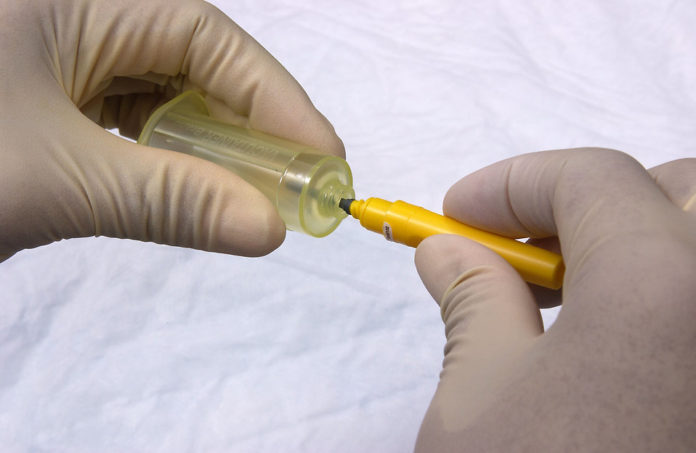Timing is the key to accuracy of antibody tests for detecting COVID-19, finds a global review
A review of studies looking at the accuracy of COVID-19 antibody tests was carried out by experts at the University of Birmingham and from universities around the globe to examine the accuracy of antibody tests for the novel COVID-19 infection.
The findings have been published in the Cochrane Database of Systematic Reviews – the gold standard for comparing evidence.
The review shows that antibody tests could have a useful role in detecting if someone has had COVID-19, but that timing is important. The review reports 30% of people were picked up by antibody tests in the first week against 90% in the third week. Researchers are however not sure, if this is true for people who have milder disease or no symptoms, because the studies in the review were mainly done in people who were in hospital.
The immune system of people who have COVID-19 responds by developing proteins in the blood called antibodies that attack the virus. Antibody tests detect these antibodies in people’s blood and indicate whether they currently have COVID-19 or have had it previously. Detection of current infection is usually done using swab tests, also called RT PCR test.
15 and 35 days after symptoms first began, antibody tests accurately detected over 90% of people with COVID-19
Cochrane researchers analyzed data from 54 relevant studies reporting test results for nearly 16,000 samples. The majority of studies were from China and were carried out in people who had been admitted to hospital and likely to have had severe disease.
The researchers found that the sensitivity (the proportion of the people who have had COVID-19 that the test can detect) of antibody testing is very closely related to when the test is performed. Tests of the IgG and IgM antibodies at 8 to 14 days after onset of symptoms correctly identified only 70% of people who had COVID-19. However, when the researchers looked at data reported at between 15 and 35 days after symptoms first began, antibody tests accurately detected over 90% of people with COVID-19. There are insufficient studies to estimate the sensitivity of antibody tests beyond 35 days after the beginning of symptoms. The tests only wrongly diagnosed COVID-19 in 1% to 2% of people without COVID-19.
Results showed that antibody tests may have a role in diagnosing COVID-19 in patients who have had COVID-19 symptoms for two or more weeks but who have not had a swab (PCR) test or tested negative despite COVID-19-like symptoms.
Professor Jon Deeks, Professor of Biostatistics and head of the Test Evaluation Research Group at the University of Birmingham, explained: “We’ve analyzed all available data from around the globe – discovering clear patterns telling us that timing is vital in using these tests. Use them at the wrong time and they don’t work. While these first COVID-19 antibody tests show potential, particularly when used two or three weeks after the onset of symptoms, the data are nearly all from hospitalized patients, so we don’t really know how accurately they identify COVID-19 in people with mild or no symptoms, or tested more than five weeks after symptoms started.”
The researchers also had several concerns about the quality of the studies they found. Dr Jac Dinnes, who worked on the review with the University of Birmingham team commented, “The design, execution and reporting of studies of the accuracy of COVID-19 tests requires considerable improvement and we plan to update this review regularly as more studies are published.”


